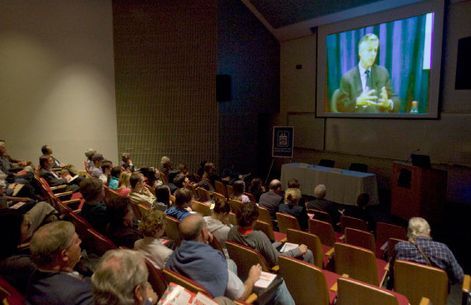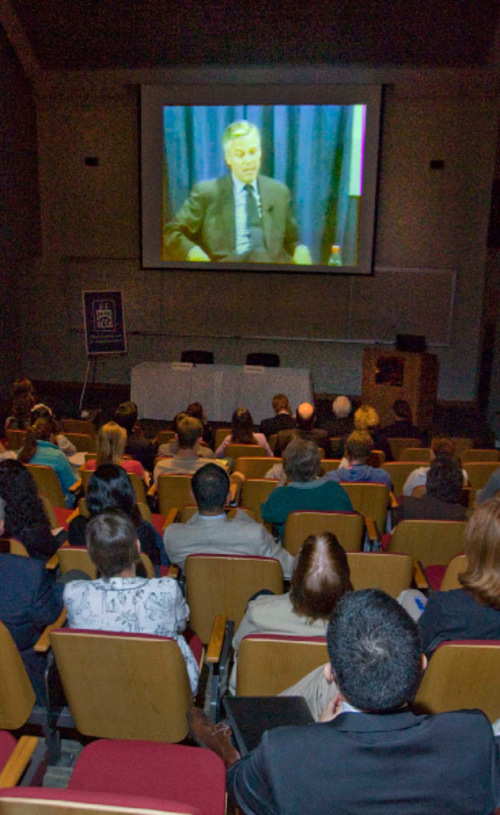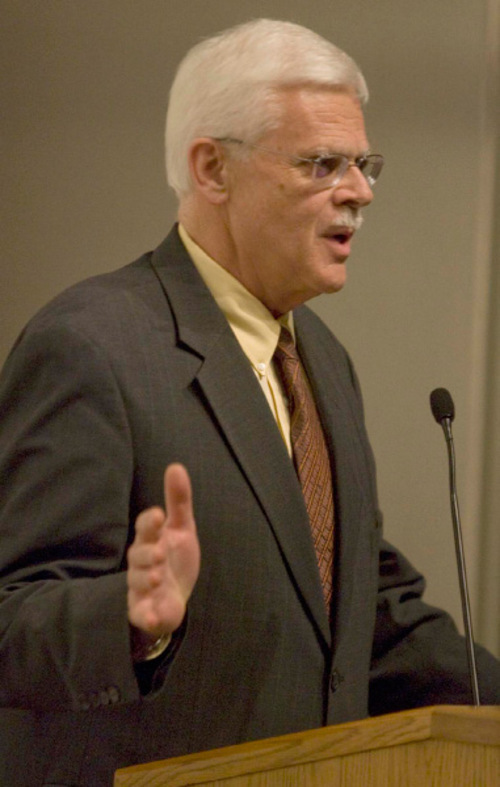This is an archived article that was published on sltrib.com in 2010, and information in the article may be outdated. It is provided only for personal research purposes and may not be reprinted.
A live webcast Monday evening gave former Utah Gov. Jon Huntsman Jr. a chance to address a national audience about key issues he deals with daily as U.S. ambassador to China.
Make that an international audience, since the "China Town Hall" organized by the National Committee on United States-China Relations was beamed over the Internet from China into 50 sites in the U.S., including Westminster College in Salt Lake City.
That reach into China signifies how far the formerly isolated Communist power has come in its quest to be a player on the world stage, Huntsman said.
"This conversation wouldn't have taken place here 40 years ago," he said, acknowledging that while China is not changing as rapidly as outsiders would like, progress is occurring across many fronts.
It will take time for the U.S. and China to "reach a cruising altitude of mutual respect and equality" that will permit remaining differences to be resolved, Huntsman said, imploring young people in both countries to keep the relationship moving forward.
How? The number of Americans studying China's prevalent Mandarin language needs to increase one-thousandfold, he added, contending "it takes a generation to understand a relationship for what it is and not what it isn't."
Huntsman's message concurred with the position advocated by National Committee on United States-China Relations.
Its president, Stephen Orlins, said the webcast was designed to "educate Americans about China so that we can fashion policies in the long-term interest of the U.S., [avoiding] misunderstandings that threaten the peace and stability" of the world.
Having this webcast aired at Westminster also was logical, said local event organizers, citing the college's exchange programs with Chinese universities in Nankai and Donghua.
The Governor's Office of Economic Development also is interested in advancing understanding because more Utah businesses are getting involved with China all the time, said Asia region director Brett Heimburger.
"Even if you never go to China, China will come to you," Heimburger said.
Huntsman shared his perspective on issues ranging from currency reform and human rights to China's military buildup and aggressive behavior in claiming authority over what many other countries consider international waters in the South China Sea.
A congressman, Rep. John Conyers Jr. from Michigan, even questioned Huntsman about Chinese activities in Africa.
Huntsman said he has impressed upon the Chinese the value of leaving a positive legacy, not just "taking out raw materials to fuel the 'Mother Ship' in China." He said he has stressed to the Chinese that long-term benefits will come from providing improved infrastructures and more stable local governments in areas where China has interests.
On currency reform, Huntsman said the Chinese are ever so slowly changing their policy.
The change is complicated, he said, because it impacts China's change from being export oriented to tending to domestic needs.
That involves major systemic revisions, such as reducing the number of farmers from 800 million to 200 million.
Huntsman also said China's human rights issues are drawing greater attention from the country's 400 million Internet users and 80 million bloggers.
As evidence, he pointed to online dialogues in China about the Nobel Peace Prize awarded recently to imprisoned Chinese human rights activist Liu Xiaobo.
"With 400 million Internet users, a lot of people are talking about this award and what it means," Huntsman said. "There's a lot of chatter out there in places people wouldn't expect."







